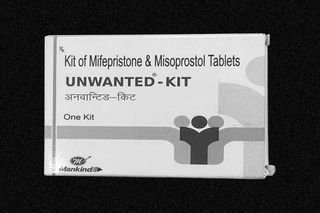
Abortion Is Legal in India, But Not Enough Women Know It
Largest-ever study of abortion in India finds stigma a barrier, too.

Abortion in India was legalized in 1971, through the Medical Termination of Pregnancy Act, and yet a new report, published by the Guttmacher Institute, illustrates how stigmatized the procedure still is. The report used 2015 data from across six of the most populous Indian states, which represent 45% of the Indian female population, to paint the broadest and most comprehensive picture we have right now of what’s happening with abortion in India.
One thing is clear: the provision of safe and effective abortions and post-abortion care is imperative, as the practice is pervasive; the report found that in India, roughly half of all pregnancies are unintended, and 26 to 41% of all pregnancies end in abortion. Another thing is clear: despite India’s legal framework, these figures include many unsafe abortions accessed outside the formal health care system.
Read more: How to Get an Abortion
The vast majority of women in the six states use so-called abortion pills (typically the combined use of misoprostol and mifepristone, tablets that can induce early-stage abortions). Under the MTPA Act, this medication may legally be prescribed through the seventh week of pregnancy. The largest proportion of abortions in these states — from 63% to 83% of abortions, in Tamil Nadu and Uttar Pradesh, respectively — are performed using this method.
Many of the pills are obtained directly from chemists or informal providers, leaving women without accurate and reliable information about administration or post-abortion care.
Which raises the question: why are so many Indian women going outside the health care system to get their abortions? Certainly, for some, access to a doctor or women’s health facility is logistically or financially difficult. But the report also flags a lack of awareness about the legality of abortion in India; many women think abortion is illegal at any point during pregnancy. Furthermore, because stigma still surrounds abortion, many women who undergo abortion via pills don’t follow up to get any post-abortion care they might need.
Read more: India Needs More Abortion Providers. Let the MTP Bill Enable Them.
It’s not just confusion about legality that keeps women from accessing safe abortions: The report found some healthcare providers are reluctant to provide abortion care because of their personal beliefs; anywhere from 54 to 87% of facilities in these states reported they had turned away in the past year at least one women seeking to terminate her pregnancy. Ostensibly, the reasons given are superficially legitimate — for example, a lack of resources of staffing — used to conceal judgmental attitudes; for example, “22 to 53% report having turned some women away because they are unmarried or have had no children, or because the provider considers them too young; smaller but still notable proportions (8 to 21%) turn away some women for not having the consent of their husband or another family member. These reasons generally are not legal grounds for denying an abortion in India.”
The report is notable in its attempts to unpack data hiding in plain sight, such as the volume of abortion pills sold outside formal healthcare systems. What the numbers reveal is a vast and urgent need for better training and access to a basic women’s health right, and one where currently, stigma and social taboo are getting in the way.
Related


Trans And Plus‑Size Women Have No Place In The ‘Fantasy’ Victoria’s Secret Is Selling
